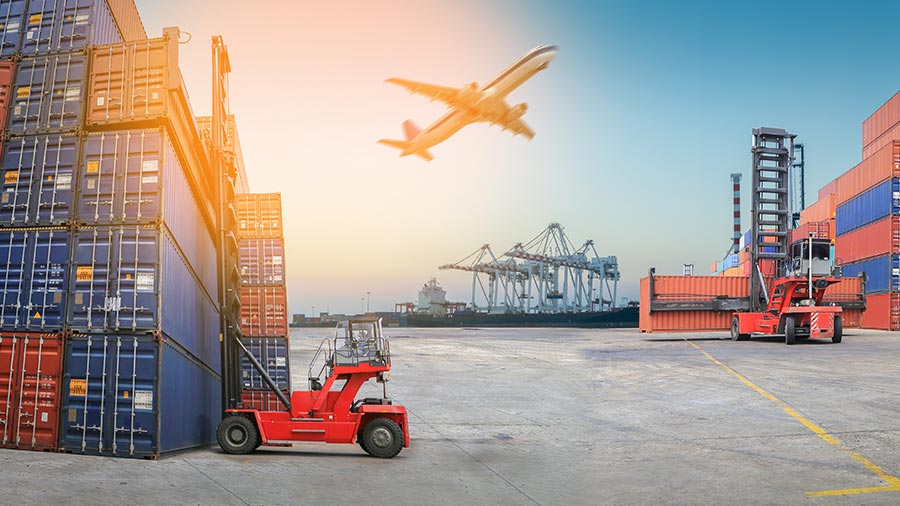In the heart of Southeast Asia, Singapore stands as a global hub of commerce and trade. Its strategic location, world-class infrastructure, and business-friendly environment have made it a prime destination for international trade. At the heart of this bustling trade ecosystem are freight forwarders, the unsung heroes of global logistics. In this essay, we will explore the vital role of freight forwarders in Singapore, their significance in international trade, the services they provide, and the challenges they face in today’s dynamic business landscape.
The Significance of Freight Forwarders
Freight forwarders are the orchestrators of the complex symphony that is international shipping and logistics. Freight forwarder in Singapore significance can be summarized in several key points:
Logistical Expertise: Freight forwarders possess specialized knowledge and expertise in navigating the intricacies of global supply chains. They understand the regulatory, documentation, and transportation requirements for moving goods across borders.
Efficient Transportation: They optimize transportation routes, modes, and carriers to ensure that goods reach their destinations in the most cost-effective and timely manner. This efficiency is crucial for businesses looking to minimize transportation costs and delivery times.
Risk Mitigation: Freight forwarders are well-versed in risk management. They help businesses mitigate potential risks associated with international shipping, such as customs issues, delays, and damaged goods.
Documentation: International trade involves a plethora of documentation, including customs declarations, bills of lading, and certificates of origin. Freight forwarders manage this paperwork, ensuring compliance with regulatory requirements.
Cost Savings: By leveraging their industry knowledge and global network of partners, freight forwarders negotiate favourable rates and terms with carriers, helping businesses save on shipping costs.
Customized Solutions: Freight forwarders provide tailored solutions based on the specific needs of their clients. Whether it’s temperature-sensitive cargo or oversized equipment, they find the best way to transport goods safely.
Services Provided by Freight Forwarders
Freight forwarders offer a comprehensive range of services that streamline the entire logistics process. Some of the key services include:
Cargo Booking and Consolidation: Freight forwarders book cargo space with carriers and often consolidate shipments to optimize efficiency and reduce costs.
Customs Clearance: They handle all customs-related processes, ensuring that goods comply with import/export regulations and facilitating smooth clearance at ports.
Transportation Management: Freight forwarders coordinate the transportation of goods from the shipper’s location to the final destination, including inland transportation and last-mile delivery.
Warehousing and Storage: Many forwarders offer warehousing and storage services for clients who need temporary storage of goods before shipment or during transit.
Cargo Insurance: They can arrange cargo insurance to protect goods against loss or damage during transit, offering peace of mind to businesses.
Supply Chain Consulting: Forwarders provide strategic guidance on optimizing supply chain processes, reducing costs, and improving efficiency.
Documentation and Compliance: They manage the preparation and submission of all necessary shipping documents, ensuring compliance with international trade regulations.
Challenges Faced by Freight Forwarders
While freight forwarders play a crucial role in global trade, they also face a set of challenges in today’s dynamic business environment:
Changing Trade Policies: Frequent changes in trade policies and tariffs can disrupt supply chains and require forwarders to adapt quickly to new regulations.
Technological Disruption: The logistics industry is undergoing significant technological transformation, with the rise of digital platforms and automation. Forwarders must invest in technology to remain competitive.
Environmental Concerns: Sustainability and environmental regulations are becoming increasingly important. Forwarders must consider eco-friendly transportation options and emissions reduction strategies.
Global Economic Trends: Economic fluctuations and geopolitical tensions can impact trade volumes and routes, affecting the demand for freight forwarding services.
Supply Chain Disruptions: Events like natural disasters, labour strikes, and global pandemics can disrupt supply chains and challenge forwarders’ ability to ensure smooth cargo flow.
Conclusion
In the vibrant landscape of global trade, freight forwarders in Singapore serve as the navigators, ensuring that the flow of goods across borders is seamless and efficient. Their logistical expertise, efficiency, and commitment to risk management make them indispensable partners for businesses engaged in international trade.
As the world continues to evolve, with new challenges and opportunities emerging, freight forwarders in Singapore will remain at the forefront of global logistics, adapting to changes and finding innovative solutions to meet the evolving needs of their clients. In this ever-connected world of commerce, they are the reliable bridge that links businesses in Singapore to markets across the globe, facilitating the exchange of goods that powers economies and drives progress.
